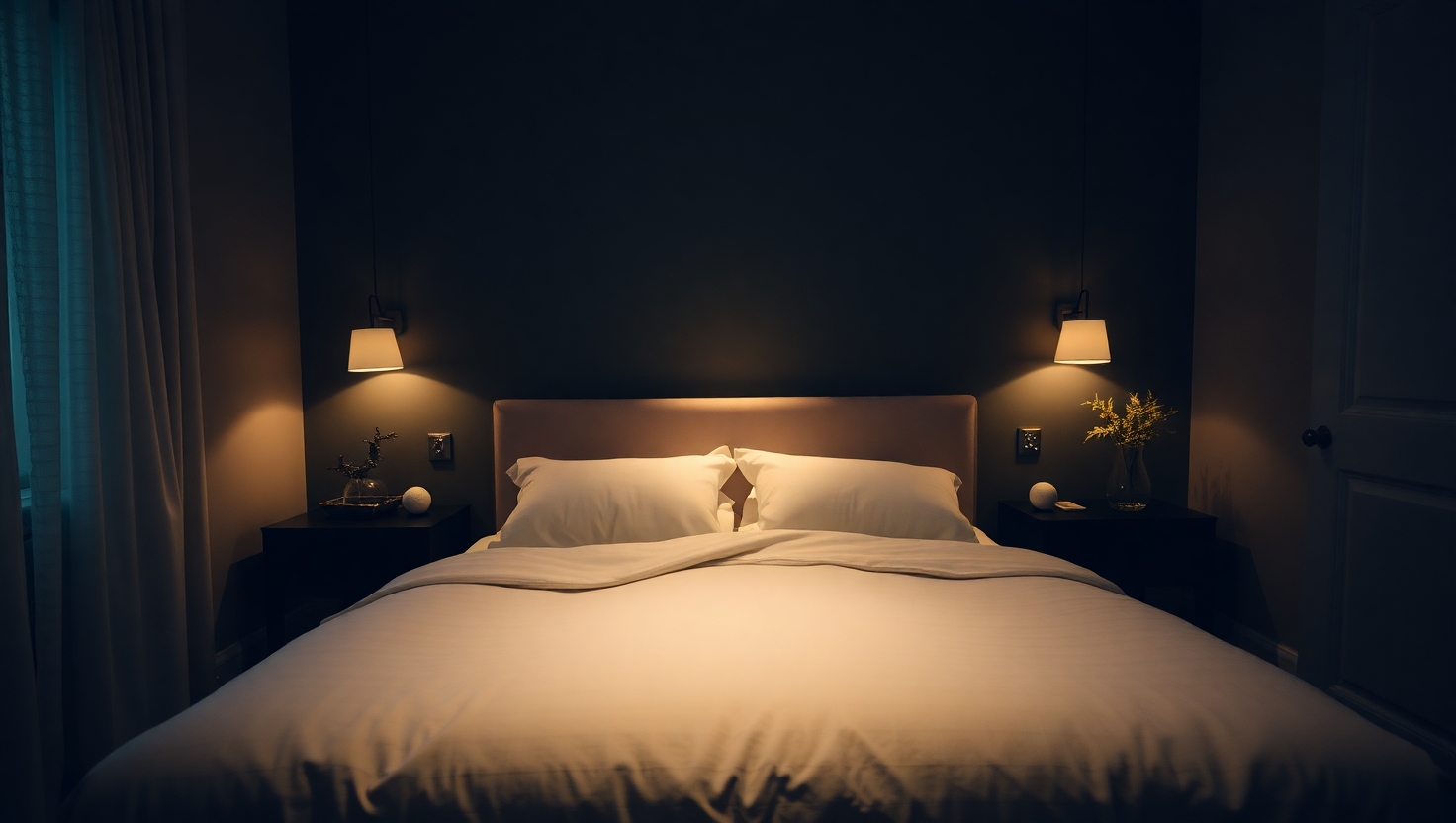Best Teas for Sleep: Natural Remedies to Beat Insomnia
Insomnia affects millions of people worldwide, harming both sleep quality and overall health.
Fortunately, there are natural alternatives that promote restful, restorative sleep.
Among them, teas for sleep stand out due to their calming and relaxing properties.
Why Are Teas for Sleep Effective?
Teas for sleep contain natural compounds that act on the central nervous system, promoting relaxation and making it easier to fall asleep.
Many of these herbs have anxiolytic and sedative effects, helping reduce stress and anxiety—two major causes of insomnia.
The 10 Best Teas for Sleep
1. Chamomile Tea
Chamomile is well known for its soothing properties.
Rich in apigenin, an antioxidant that binds to brain receptors, it helps reduce anxiety and induce sleep.
How to prepare:
- Add 1 tablespoon of dried chamomile flowers to 250 ml of boiling water.
- Steep for 5 to 10 minutes.
- Strain and drink about 30 minutes before bedtime.
2. Valerian Root Tea
Valerian root has been used for centuries to treat sleep disorders.
Its active compounds increase GABA levels in the brain, promoting relaxation and improving sleep quality.
How to prepare:
- Boil 1 tablespoon of dried valerian root in 250 ml of water.
- Steep for 10 to 15 minutes.
- Strain and drink 30 minutes before sleep.
3. Lemon Balm Tea
Lemon balm (Melissa officinalis) has mild sedative effects.
It helps reduce anxiety and stress, making it easier to fall asleep naturally.
How to prepare:
- Add 1 tablespoon of dried lemon balm leaves to 250 ml of hot water.
- Steep for 5 to 10 minutes.
- Strain and enjoy before bedtime.
4. Passionflower Tea
Passionflower (Passiflora) has relaxing and sedative properties.
It reduces nervous system activity, helping your body transition smoothly into sleep.
How to prepare:
- Add 1 tablespoon of dried passionflower leaves to 250 ml of hot water.
- Steep for 10 to 15 minutes.
- Strain and drink before sleep.
5. Lavender Tea
Lavender is famous for its calming aroma and sedative benefits.
Lavender tea helps relieve anxiety and promote deeper sleep.
How to prepare:
- Add 1 teaspoon of dried lavender flowers to 250 ml of hot water.
- Steep for 5 to 7 minutes.
- Strain and drink before bed.
6. Linden Flower Tea
Linden (Tilia) has calming properties and is often used to treat mild insomnia.
It helps the body and mind unwind naturally.
How to prepare:
- Add 1 tablespoon of dried linden flowers to 250 ml of hot water.
- Steep for 10 minutes.
- Strain and enjoy before bed.
7. Mulungu Tea
Mulungu is a Brazilian herb with sedative and anxiolytic effects.
It is especially helpful for stress-related sleep issues.
How to prepare:
- Boil 1 tablespoon of mulungu bark in 250 ml of water for 10 minutes.
- Strain and drink 30 minutes before sleep.
8. Lettuce Tea
Although not well known, lettuce tea has mild sedative effects that help induce sleep.
How to prepare:
- Boil a few lettuce leaves in 250 ml of water for 5 minutes.
- Strain and drink while warm, before bed.
9. Peppermint Tea
Peppermint has soothing effects that relieve tension and promote calm sleep.
How to prepare:
- Add 1 tablespoon of fresh peppermint leaves to 250 ml of hot water.
- Steep for 5 to 10 minutes.
- Strain and enjoy before sleeping.
10. Star Anise Tea
Star anise has relaxing and digestive benefits.
Its sweet flavor makes it a pleasant pre-sleep beverage.
How to prepare:
- Boil 1 star anise in 250 ml of water for 5 minutes.
- Strain and drink warm, 30 minutes before bedtime.
[INSERT IMAGE 2 HERE]
Extra Tips to Boost the Effects of Sleep Teas
- Create a bedtime routine with soft lighting and quiet surroundings.
- Avoid screens and blue light at least one hour before bed.
- Drink your tea at the same time every night to build consistency.
- Avoid caffeine and sugar in the evening.
[INSERT IMAGE 3 HERE]
Can Sleep Teas Have Side Effects?
Yes. Some herbs may interact with medications or be contraindicated for pregnant or breastfeeding women, or people with specific conditions (e.g., low blood pressure or liver problems).
Always consult a healthcare provider before using these teas regularly.
Conclusion
Teas for sleep are natural allies in fighting insomnia and restoring sleep quality.
With proper use and healthy bedtime habits, you can enjoy deeper, more peaceful nights—without relying on medication.
Internal link suggestion:
Want more sleep-enhancing tips?
Read our blog post:
How to Improve Sleep Quality Naturally
External link suggestion:
Looking for expert sleep guidance?
Visit the National Sleep Foundation, one of the leading authorities on sleep health.
Disclaimer: The information presented in this article is for educational purposes only and does not replace professional medical advice, diagnosis, or treatment. Always consult a qualified healthcare provider with any questions you may have.


No responses yet